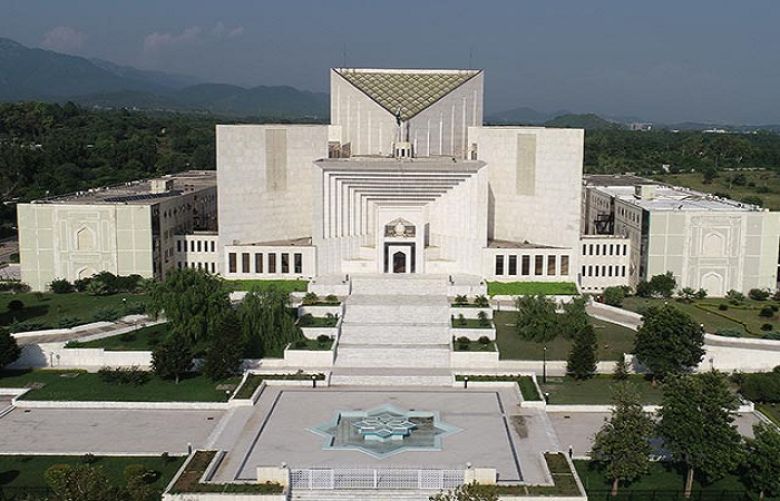In a notable turn of events, the Supreme Court of Pakistan on Friday declared the recently-enacted Review of Judgments and Orders Act 2023 null and void.
A three-member bench headed by Chief Justice of Pakistan(CJP) Umar Ata Bandial, Justice Munib Akhtar, and Justice Ijazul Ahsan pronounced the reserved verdict.
On June 19, during the hearing, Chief Justice Umar Ata Bandial expressed his reservations, underscoring the importance of comprehensive consultation with experienced legal minds before enacting pivotal laws such as the Supreme Court (Review of Judgments and Orders) Act, 2023.
He highlighted the value of inputs from professionals such as the attorney general for Pakistan (AGP), drawing attention to their wealth of experience in legal proceedings.
Addressing the inherent complexities of the matter, the Chief Justice acknowledged the necessity for remedies within the framework of Article 184(3), a provision that empowers the Supreme Court to assume jurisdiction in cases of significant public interest.
While acknowledging the potential benefits of legislative refinements, he emphasized the imperative of meticulous drafting to safeguard the integrity of the judiciary.
AGP Mansoor Usman Awan and PTI lawyer Ali Zafar concluded their arguments in the case after which the apex court reserved its verdict.
“We will announce the verdict after discussing it among ourselves,” Justice Bandial said. “Let’s see what happens.”
(Review of Judgments and Orders) Act 2023
Titled as the Supreme Court (Review of Judgments and Orders) Act 2023, this fresh legislation aims to enhance and fortify the powers of the SC in revisiting its judgments. The act seeks to broaden the jurisdiction of the highest court, as outlined in Article 188 of the Constitution.
This empowers the apex court to reevaluate any judgment, ensuring that the fundamental right to justice is upheld through meaningful review of its judgments and orders, particularly those made under Article 184(3) in its original jurisdiction.
According to Section 2 of the act, the review’s scope, encompassing both factual and legal aspects, mirrors that of an appeal under Article 185 of the constitution. Section 3 stipulates that a review petition shall be considered by a larger bench than the one responsible for the initial judgment or order. Similarly, Section 4 grants the petitioner seeking review the authority to choose any advocate from the Supreme Court for this purpose.
In accordance with Section 5, the right to file a review petition is extended to an aggrieved party who has been subjected to an order under Article 184(3) of the Constitution prior to the act’s commencement. However, such a review petition, as per this section, must be submitted within 60 days of the act’s commencement.
Section 6 dictates that the review petition must be lodged within 60 days of the original order’s issuance. Notably, the provisions of this act hold paramount significance and override any conflicting elements in other prevailing laws, rules, regulations, or judgments, even those from the Supreme Court and the high court.







